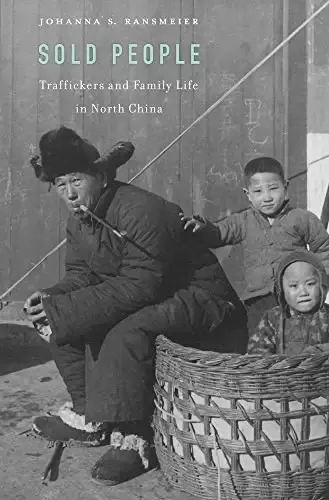
作者:JohannaS.Ransmeier/任思梅
出版社:HarvardUniversityPress
副标题:TraffickersandFamilyLifeinNorthChina
出版年:2017-3-20
页数:408
定价:USD49.95
装帧:Hardcover
ISBN:9780674971974
内容简介
· · · · · ·
A robust trade in human lives thrived throughout North China during the late Qing and Republican periods. Whether to acquire servants, slaves, concubines, or children—or dispose of unwanted household members—families at all levels of society addressed various domestic needs by participating in this market. Sold People brings into focus the complicit dynamic of human trafficking, including the social and legal networks that sustained it. Johanna Ransmeier reveals the extent to which the structure of the Chinese family not only influenced but encouraged the buying and selling of men, women, and children.
For centuries, human trafficking had an ambiguous status in Chinese society. Prohibited in principle during the Qing period, it was nevertheless widely accepted as part of family life, despite the frequent involvement of criminals. In 1910, Qing reformers, hoping to usher China into the community of modern nations, officially abolished the trade. But police and other judicial officials found the new law extremely difficult to enforce. Industrialization, urbanization, and the development of modern transportation systems created a breeding ground for continued commerce in people. The Republican government that came to power after the 1911 revolution similarly struggled to root out the entrenched practice.
Ransmeier draws from untapped archival sources to recreate the lived experience of human trafficking in turn-of-the-century North China. Not always a measure of last resort reserved for times of extreme hardship, the sale of people was a commonplace transaction that built and restructured families as often as it broke them apart.
作者简介
· · · · · ·
Johanna S. Ransmeier is Assistant Professor of History and the College at the University of Chicago.
目录
· · · · · ·
Conventions
Introduction
1. A Young Woman as Portable Property
2. The Flow of Trafficking in the Late Qing
3. New Laws and Emerging Language
4. Fictive Families and Children in the Marketplace
5. Moving Beyond the Reach of the Law
6. The Warlord’s Widow and the Chief of Police
7. Domestic Bonds
8. Talking with Traffickers
Conclusion
Appendix
Notes
Chinese Terms
Acknowledgments
Index
评论 ······
读了intro
第一章有好好看 每个人供词很有趣 当时评论了好看 后面大致翻阅了 因为有点想回避这种吃人情节 。后面有介绍当时清朝法律 官员任职其他影响 。让我想起 2022年徐州铁链女事件 在200年前的中国很普遍 现在却仍有很多和徐州女一样遭遇的女性 欺骗谎言强奸虐待不断转手…… 只不过她们接受了命运 与 无力为自己申诉或者孩子纠葛等 。本书还是理性客观分析清朝一个吃人社会现象 我觉得苦 封面让我觉得难受😣
史料把握得太好了!开篇陈述晚晴忽视人口贩卖源于该现象的地方化,大量社会动乱分散了朝廷的注意力,贩卖人口为落魄家庭提供了生路(非卖不可)。一章谈女子被父亲、丈夫、作为男性的财产被几重倒卖。二章延续了贩卖女性的性/生育资本停留于私人领域,由于等级制家庭结构、当地默许的规范和腐败依旧猖獗,与西方的奴隶不同。三章再谈人口贩卖在晚清解决危难人口的生存,是现存社会问题的集结,但因为规模全国化后引起了社会恐慌;…
对于我来说,其中关于家庭的部分更让人感兴趣。从微观的视角出发,家庭本身应该具有保护性的功能,以区别出社群的内外;然而家庭内部的等级又使得家庭变成了高位者的避险工具。联系起以前看过的一篇经济学文献(我想不起来名字了),换句话说,女性以及由女性生产出来的儿童都是作为避险工具存在;当风险来临的时候,政府没有力量帮助社会来抵御某些风险,这时候妇女儿童就变成了一种金融工具。这本书所叙述的故事,为这样的说法提…
评论前必须登录!
注册